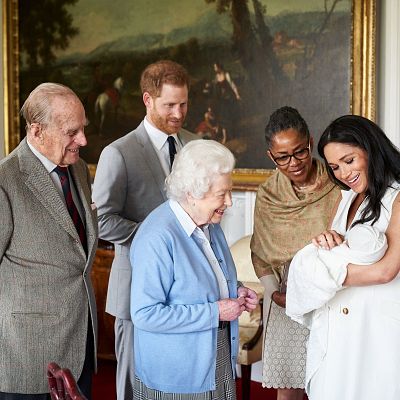In the wake of King Charles‘ ambitious plans to streamline the monarchy, tensions are brewing within the royal family.
After a summer retreat at Balmoral, discussions are set to address critical issues affecting the future of the monarchy, particularly concerning Prince George.
Allegations suggest that the Prince and Princess of Wales are not entirely on board with their father’s vision, fearing it could place undue pressure on their children.
The couple is reportedly concerned that a simplified monarchy will require their kids to take on more royal duties, which could overwhelm them.
The idea of a smaller working royal household sounds appealing but comes with its own set of challenges.
For instance, under the new guidelines, young Prince George will be expected to travel alone, regardless of the situation.
Moreover, once he reaches the age of 12, he will have to make a pivotal decision about attending boarding school.
To help him navigate this demanding journey, the royal family plans to appoint a mentor who will guide George as he prepares for his future role.
This initiative aims to balance traditional royal expectations with the demands of modern life.
One of the longstanding protocols that complicate matters is the rule prohibiting members of the royal succession from traveling together.
This safety measure, designed to ensure the monarchy’s continuity in case of a tragedy, has become a source of anxiety for Catherine, who values her family’s closeness.
Royal commentators have chimed in, highlighting that while these protective measures are rooted in tradition, their emotional toll on the family should not be ignored.
King Charles envisioned a streamlined monarchy to lessen the financial burden on British taxpayers.
However, this plan inadvertently leaves the heir apparent with fewer family members to rely on during challenging times.
It’s essential to remember that George, Charlotte, and Louis are still quite young.
It will likely be a decade or more before they begin to take on public engagements in earnest.
The execution of King Charles’ vision has proven especially difficult, particularly given the additional stressors facing the Wales family, including Catherine’s ongoing battle with cancer.
The potential inclusion of relatives like Mike and Zara Tindall, along with their children, Princess Eugenie, and Lady Louise Windsor, could provide much-needed support.
Their involvement might help distribute responsibilities more evenly, alleviating some of the pressures on the primary royal family members.
This kind of collaboration is a departure from recent royal practices.
Queen Elizabeth II’s era was marked by a larger pool of working royals, which helped maintain a busy schedule.
Despite being a well-loved monarch, she acknowledged the challenges of such a demanding role.
In 1992, she remarked that most people have jobs and then go home, a sentiment that resonates even today.
Elizabeth faced personal tragedies, including the loss of her mother and sister, which cast shadows over significant milestones in her reign.
A keen historian of her family’s legacy, she understood the fragility of public sympathy and recognized the importance of maintaining a visible presence.
Her great-great-grandmother, Queen Victoria, learned this lesson the hard way when her withdrawal from public life after her husband’s death led to a decline in public affection.
While the royal family often emphasizes duty, the reality is that for most people, family comes first.
The Waleses have embraced a more nurturing approach to parenting, ensuring their children are enveloped in love and support.
In moments of uncertainty, George has shown signs of anxiety in public settings, prompting William to reassure him with gentle gestures.
William is also increasingly aware of the world his children will inherit.
His son George once expressed distress over a nature documentary, revealing a sensitive side to the young royal.
With concerns about climate change looming large, William reflects on the lasting impact of environmental issues on future generations.
He hopes that through experiences like litter-picking, his children will grow up with a strong sense of environmental responsibility.
As the royal family navigates these complex dynamics, it’s clear that the balance between tradition and modernity will continue to shape the future of the monarchy.
The challenges ahead may be daunting, but the commitment to family remains a guiding principle for the Wales family.
Related Stories

